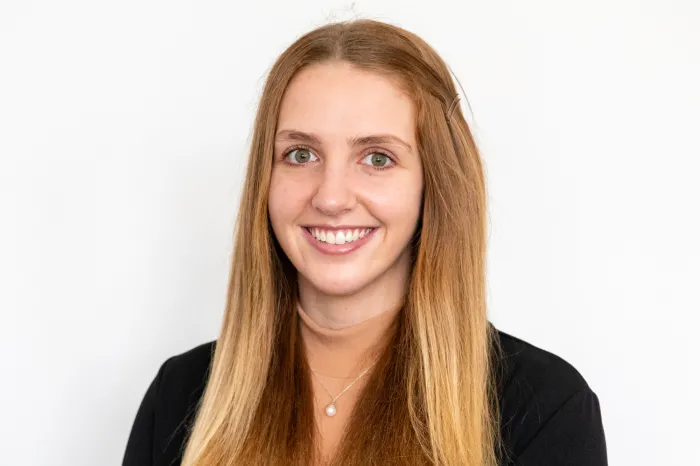
On the basketball court, Katie McIlroy ’21 (Circleville, Ohio) understands the importance of being coached and motivated to succeed.
The Economics and Political Science major realized recently that the same approach works just as well in the classroom.
While conducting undergraduate research and writing her paper on “How do Misery Index Levels Impact Income Inequality within the United States?” she learned that mentoring by a faculty member can coax the best out of a student — and her paper was selected to be presented virtually at the annual MBAA International Conference, which is scheduled for March 24-26.
“I was thrilled when I found out my paper was selected to be presented at the MBAA International Conference,” McIlroy said. “Dr. (Bizuayehu) Bedane had mentioned to me multiple times that I had the potential to be selected for this honor, and it’s almost serving as the culmination of my four years at Marietta College. I am proud of the work I submitted, and I am more grateful for the help I had along the way.”
McIlroy was in Dr. Bedane’s Intermediate Macroeconomics, Applied Regression Analysis, and Empirical Research classes. He observed that she is hardworking and that she focuses on the details that help her stay on top of her class.
“Katie has a strong analytical ability, writing skills and exceptional work ethic,” he said. “These qualities are invaluable assets for graduate school. Katie will be successful if she continues her graduate study.”
The undergraduate research paper is about the effect of inflation and unemployment on income inequality in the United States. Specifically, her research weighs the impact of the misery index (the summation of unemployment and inflation) on income inequality as measured by the Gini coefficient.
“Using economic analysis, it was found that these two variables are positively correlated; thus, as the misery index increases, income inequality also increases,” she said. “In essence, when inflation and unemployment are higher, the average U.S. citizen is less capable of adequately closing the gap between high-income and low-income earners due to binding circumstances limiting their economic opportunities.”
Bedane said the issue she raised and the methodology implemented to address her research question are the reasons for her paper to be accepted for the conference.
“She used an advanced panel data model to examine the relationship between the misery index and income inequality,” he said. “The result of her research suggests that inflation and unemployment increase income inequality. Her topic is timely and informs policymakers.”
McIlroy found the process of choosing a topic a lot more challenging than she anticipated.
“I struggled with which economic concepts I wanted to consider, and I researched for a while before I settled on this. It all started coming together when we discussed the Gini index in my Comparative Economic Systems class with Dr. (Greg) Delemeester,” she said. “I had known about this measurement of income inequality for a while, but covering it again reignited my interest. I had also found several studies weighing the impact of income inequality with the misery index in international studies, but there was little research conducted domestically, and this is what I knew my research could bring to the table. I learned a lot throughout this process. The most important is probably that accumulating data is not easy and it is a lot of work, but it is something that pays off in the end. Additionally, I found it important to not get discouraged when test results regarding my data did not turn out how I would have hoped. Calling it a process is extremely fitting because that is exactly what it is.”
McIlroy is planning to go to law school in the fall, however, she is still undecided on where she will attend. She believes Marietta College has prepared her well for her next adventure.
“I find it to be extremely special that I had the opportunity to partake in this type of undergraduate research,” she said. “I can’t speak on the experience of B&E students at other universities or colleges, but I think this is one of the things that makes Marietta College so exceptional. Conducting undergraduate research has really set the stage for me in terms of entering the ‘real world.’ I plan on attending law school, and even though this doesn’t necessarily align with the specifics of my economics research, the skillsets I garnered throughout the process will be vital to my success in the legal field.”